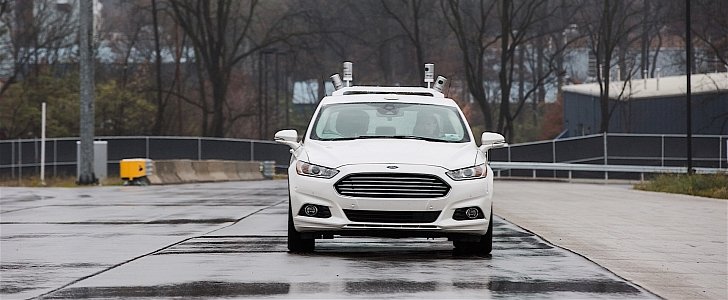Velodyne, a company founded 32 years ago in California to focus on high-end audio systems, has received a $150 Million investment for the continual development and production of Lidar.
The investment came from Ford and Baidu. While you all know about the Blue Oval, Baidu is China’s largest search engine provider. Ford’s implication in the project was more than evident, as Velodyne is its supplier for Lidar technology.
The American automaker is most interested in advancing Lidar to the highest possible level. On the other hand, Baidu’s interest in Lidar is curious, as its ambitions in the field are unclear.
As USA Today notes, Ford uses Lidar exclusively in its self-driving development vehicles. Raj Nair, Ford’s Executive Vice President of Product Development has stated that Velodyne is the “only supplier in the market that can help them achieve their goal.”
You could say things are getting serious between Ford and Velodyne, but it is all in the name of the unprecedented level of safety that is expected of driverless cars.
Lidar is an alternative technology to radar, as it works with 3D light-powered waves, invisible to the eye, which is used to provide better feedback than radar when it comes to mapping objects and other applications needed in autonomous cars. With extremely short bursts of laser light, a self-driving car with Lidar can generate a 3D map of the road it travels.
Ford and Velodyne have been working together for years. Even before the new investment, volume orders have managed to reduce the cost of Lidar technology from approximately $8,000 to $500 per unit, but only if the client purchases high volumes. The Blue Oval is interested in getting its hands on a lot of Lidar systems, as it intends to offer a fully autonomous car by 2021.
Tesla Motors is not as interested in Lidar as other automakers that want to deliver fully autonomous cars. The reason behind Tesla’s aversion for Lidar is unclear, even though prototypes of Model S cars with Lidar sensors have been spotted on the road.
The American automaker is most interested in advancing Lidar to the highest possible level. On the other hand, Baidu’s interest in Lidar is curious, as its ambitions in the field are unclear.
As USA Today notes, Ford uses Lidar exclusively in its self-driving development vehicles. Raj Nair, Ford’s Executive Vice President of Product Development has stated that Velodyne is the “only supplier in the market that can help them achieve their goal.”
You could say things are getting serious between Ford and Velodyne, but it is all in the name of the unprecedented level of safety that is expected of driverless cars.
Lidar is an alternative technology to radar, as it works with 3D light-powered waves, invisible to the eye, which is used to provide better feedback than radar when it comes to mapping objects and other applications needed in autonomous cars. With extremely short bursts of laser light, a self-driving car with Lidar can generate a 3D map of the road it travels.
Ford and Velodyne have been working together for years. Even before the new investment, volume orders have managed to reduce the cost of Lidar technology from approximately $8,000 to $500 per unit, but only if the client purchases high volumes. The Blue Oval is interested in getting its hands on a lot of Lidar systems, as it intends to offer a fully autonomous car by 2021.
Tesla Motors is not as interested in Lidar as other automakers that want to deliver fully autonomous cars. The reason behind Tesla’s aversion for Lidar is unclear, even though prototypes of Model S cars with Lidar sensors have been spotted on the road.












